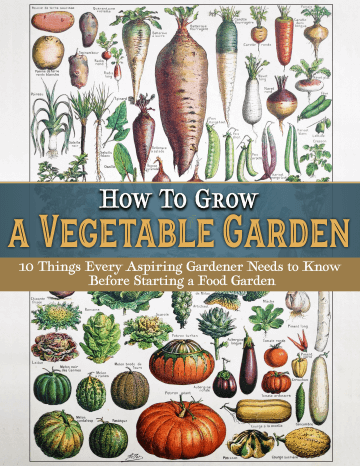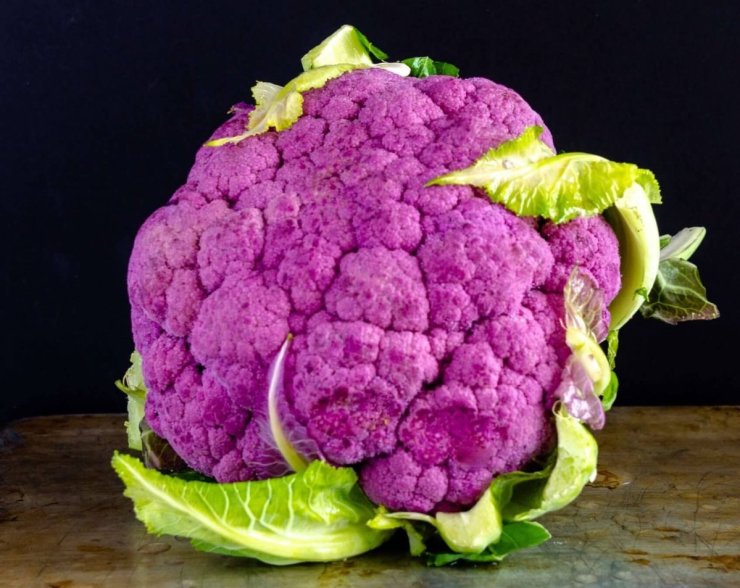
They lower the risk of type 2 diabetes, help prevent cancer, have anti-inflammatory and antioxidant properties, act as an antiviral, improve gut bacteria, and that’s just the beginning. There’s no denying the health benefits of cruciferous vegetables.
In the kitchen, you can sauté, steam, roast, and grill them. You can enjoy them raw. Add them to salads, pasta, pizza, in a stir fry, or as a side on their own. The world of cruciferous vegetables is wide open.
And in the garden? You’ll find some 3,000 species of cruciferous vegetables, including cultivars of broccoli, cauliflower, Brussels sprouts, cabbage, bok choy, collard greens, mustard greens, turnips, Swiss chard, kohlrabi, and more. Clearly, cruciferous vegetables are pretty much perfect if you ask me.
With so many to choose from, what are some of the best health benefits of cruciferous vegetables, and which of them work well in a home garden? I’m glad you asked!
Discover 10 top tips for growing, harvesting, and enjoying fruits, vegetables, herbs and more from your home garden—when you access the FREEBIE How to Grow a Vegetable Garden, right now!
The 5 health benefits of cruciferous vegetables you don’t want to miss out on
You read through some of the health benefits of cruciferous vegetables above, but let’s get into specifics and find out what makes these vegetables so darn healthy.
According to the Micronutrient Information Center at Oregon State University’s Linus Pauling Institute, cruciferous vegetables contain high levels of glucosinolates, which is rare in other vegetables. These compounds are rich in sulfur and are believed to contribute significantly to cellular health, thereby helping prevent diseases.
Cruciferous vegetables are also rich in folate, vitamin C, vitamin K, calcium, carotenoids, fiber, lignans, phytosterols, and much more. I won’t get into the minutia, but if you’re interested, definitely check out the link above. They discuss issues like metabolism, bioavailability, nutrient interactions, and genetics. They also review nearly 250 scientific studies around the health benefits of cruciferous vegetables and reference nearly five dozen research papers.
The good news is that you don’t need to know the details of cellular biology to get some of the amazing health benefits of cruciferous vegetables, such as these.
1. Plenty of fiber. Fiber can help with weight management, regulation of blood sugar and cholesterol, water and electrolyte absorption, and it helps with keeping things moving through our system. Per serving, radishes contain 4% of the recommended daily intake of dietary fiber, cabbage and cauliflower both contain 8% of the recommended amount, while broccoli has 12%. And in case you’re wondering, the USDA recommends 14 grams of fiber per 1,000 calories.
2. Good for your blood. Vitamin K is essential for blood clotting and is thought to be beneficial for strong bones. Swiss chard, Brussels sprouts, cauliflower, and cabbage are all good sources of vitamin K.
3. Cellular regeneration. Brussels sprouts and mustard greens are both rich in folic acid and folate, a B vitamin. Folate is important for cell growth, and it’s an especially important nutrient during pregnancy as it helps by “lowering the risk of serious problems that occur during pregnancy that can affect the baby’s brain (anencephaly) and spine (spina bifida),” according to the FDA.
4. Plenty of vitamin C. Vitamin C is essential for the absorption of iron, healing wounds, repairing cartilage, and blocking damage to cells. Vitamin C can help lower the risk of cancer, heart disease, and arthritis. Importantly, however, our bodies don’t store vitamin C, so the only way to ensure we have the proper amounts of this vitamin is to consume it as part of a healthy diet. And wouldn’t you know it, cruciferous vegetables like broccoli, Brussels sprouts, cauliflower, and cabbage have some of the highest levels of vitamin C available. In fact, broccoli and cauliflower both contain more vitamin C per serving than an orange!
5. Reduced incidence of colorectal cancer. There is some conflicting evidence linking the consumption of cruciferous vegetables to a lower risk of cancers. But some newer, controlled studies “have shown that the bioactive components of cruciferous vegetables can have beneficial effects on biomarkers of cancer-related processes in people.” One of many is a study published in 2022 in the peer-reviewed journal, Evidence-based Complementary and Alternative Medicine.
Those are just some of the health benefits of cruciferous vegetables, but let’s not overlook one extremely important aspect of these foods: they taste amazing!
7 cruciferous veggies to plant in your garden
With thousands to choose from, my guess is that you’ll want to cut your list of possible cruciferous vegetables down to just a few for your garden. As far as vegetables go, there are some considerations for these particular vegetables. For example, some strongly prefer cool weather, while others need a long time to mature. Personally, I don’t really think you can go wrong with any of these, but then again, I love cooking with most of them, so garden accordingly!
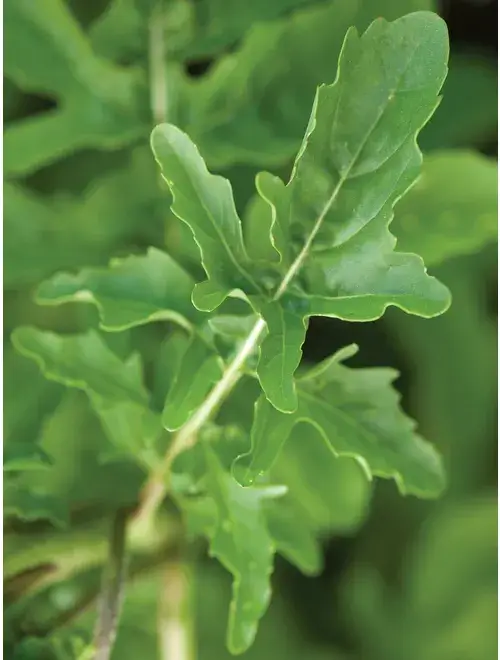
1. Arugula. I know salad greens aren’t typically the first thing that comes to mind when you think about cruciferous vegetables. But this zesty green is a member of the Brassicacea family. Arugula prefers cooler weather, but since some varieties are ready to harvest in as little as 35 days, you can grow it pretty much all season with the exception of mid-summer.
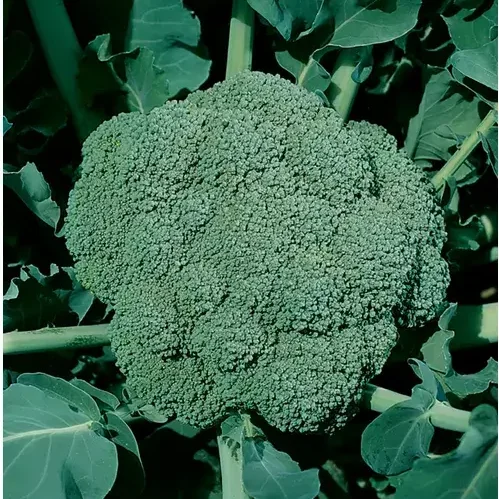
2. Broccoli. Broccoli takes 70 to 80 days to mature, but most varieties do okay with a little cool weather. The Waltham 29 is an heirloom variety known for its great taste.
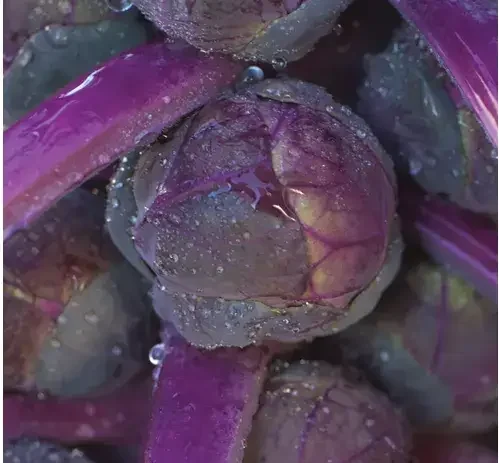
3. Brussels sprouts. You’ll need a long growing season for Brussels sprouts, as some varieties can take about five months to mature. However, they tolerate some light frost quite well. The Redarling Hybrid is a unique and colorful variety that leans toward the sweeter end of the flavor profile.
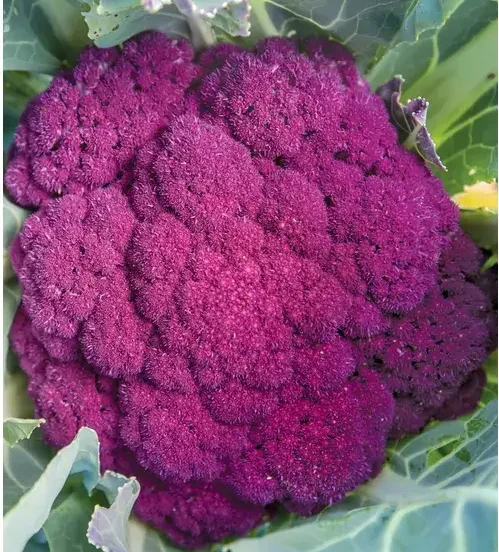
4. Cauliflower. Cauliflower has come a long way from the tasteless, boring vegetable many of us might remember from childhood. For instance, the Depurple Hybrid is, as you can guess, a gorgeously rich purple. It tastes just as good as it looks—buttery sweet, nutty, and crisp. Choose your variety carefully, though. While the Depurple needs about 100 days to maturity, other varieties can be ready to harvest in about half that time.
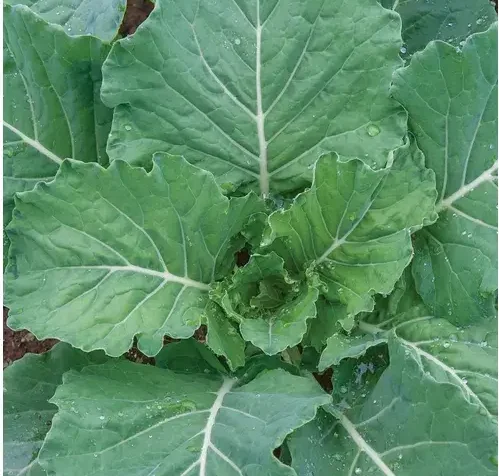
5. Collard greens. There’s no shortage of collard greens in southern kitchens, and it’s high time the rest of the country catches up. They’re delicious braised, jam-packed with nutrients, and they’re so easy to grow. Heirloom varieties like Georgia collards need about 65 days to maturity.
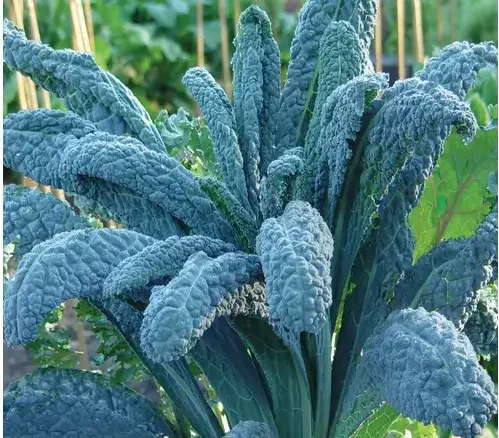
6. Kale. Perhaps the darling of the nutritional world, kale is also a gardener’s pride and joy. Its range of colors makes kale a nice decorative addition to the garden, the vegetable actually gets sweeter after a frost or two, and even though varieties like the heirloom Lacinato kale need around 75 days to maturity, you can harvest the leaves pretty much whenever you want.
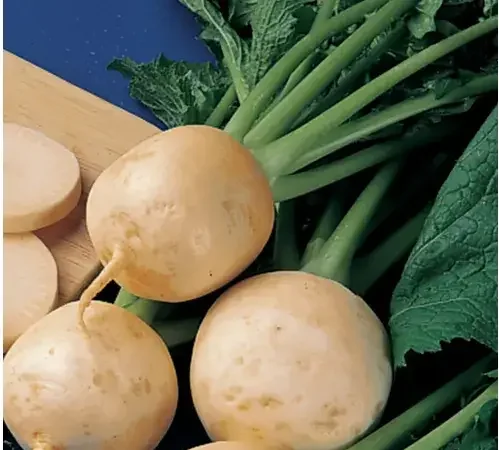
7. Turnips. If you aren’t growing turnips, you’re missing out on a culinary delight. The root vegetable itself is versatile. You can roast it, boil it and make mashed “potatoes,” or add it to a stew. As a bonus, the greens are not only edible; they’re also delicious. Just cook them up like you would spinach, kale, or any other green. The Golden Globe turnip is ready to harvest in about 55 days, and it’s a gorgeous vegetable.
Of course, there are many, many more cruciferous vegetables, but we have to start somewhere. The great thing about any of these is that all the health benefits of cruciferous vegetables are present. These are bona fide nutrition powerhouses.
Do you have a favorite cruciferous vegetable to grow in your garden? I’d love to read about it in the comments.
Note: Food Gardening Network contains links to affiliate websites, including Amazon and Rakuten Affiliate Network, and we may receive a commission for any eligible purchases made by you through links on this page. Any reviews are based on honest reviews of the products.
Discover 10 top tips for growing, harvesting, and enjoying fruits, vegetables, herbs and more from your home garden—when you access the FREEBIE How to Grow a Vegetable Garden, right now!


